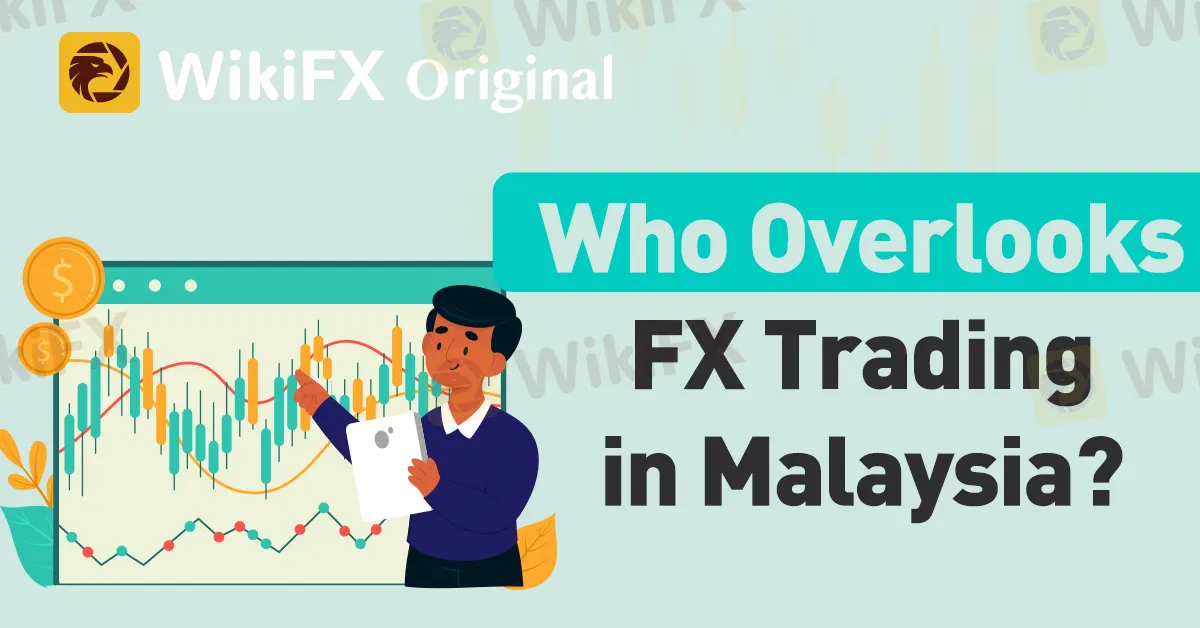简体中文
繁體中文
English
Pусский
日本語
ภาษาไทย
Tiếng Việt
Bahasa Indonesia
Español
हिन्दी
Filippiiniläinen
Français
Deutsch
Português
Türkçe
한국어
العربية
Who Overlooks FX Trading in Malaysia?
Abstract:In this article, we will delve into the regulatory landscape of forex trading in Malaysia, emphasizing the importance of trading with regulated brokers to mitigate risks.

Forex trading, also known as foreign exchange trading, is a lucrative yet highly risky financial activity that attracts investors from all around the world, including Malaysia. In this article, we will delve into the regulatory landscape of forex trading in Malaysia, emphasizing the importance of trading with regulated brokers to mitigate risks.
The Regulatory Authorities:
1. Bank Negara Malaysia (BNM):
As the central bank of Malaysia, BNM plays a vital role in overseeing the country's financial system. Under its purview, BNM regulates all financial institutions, including those providing forex trading services. Its primary goal is to maintain financial stability and safeguard the integrity of the forex market by imposing strict guidelines on licensed institutions.
2. Securities Commission Malaysia (SC):
The SC serves as the primary regulatory agency for Malaysia's capital market. While its main focus is on overseeing the trading of securities on the Bursa Malaysia stock exchange, it also has authority over forex contracts trading. The SC aims to create a fair and transparent market for investors and imposes rules and regulations to ensure market integrity.

Other Government Bodies Involved:
In addition to BNM and SC, several other government bodies have a role in the regulation of forex trading in Malaysia:
Ministry of Finance: It plays a significant role in crafting financial policies and regulations related to forex trading.
Ministry of Domestic Trade and Consumer Affairs: This ministry is involved in ensuring fair practices and consumer protection within the forex industry.
Securities Industry Development Corporation: This organization assists in the development and growth of the securities industry, including forex trading.

Key Regulations Governing Forex Trading:
1. Capital Market and Services Act 2007 (CMSA):
The CMSA is a crucial piece of legislation that provides the legal framework for the regulation of Malaysia's capital market, including forex trading. It outlines the powers and responsibilities of the SC and establishes rules to promote market efficiency, investor protection, and fair trading practices.
2. Securities Commission Malaysia Act 1993 (SCMA):
The SCMA specifically empowers the Securities Commission Malaysia to regulate various aspects of the capital market, ensuring that all participants adhere to the prescribed standards of conduct and operational procedures.
3. Futures Industry Act 1993 (FIA):
The FIA addresses the regulation of futures contracts, including those related to forex trading. It seeks to maintain a well-functioning and transparent futures market, safeguarding both traders and the overall market stability.
4. Banking and Financial Institutions Act 1989 (BAFIA):
The BAFIA primarily governs banking and financial institutions, including those involved in forex trading. It lays down the guidelines for the operation and supervision of these institutions to uphold the financial system's integrity.
Importance of Trading with Regulated Brokers:
Forex trading inherently involves substantial risks due to market volatility and leveraged trading. Therefore, it is imperative for investors to only engage with regulated brokers authorized by the relevant authorities. Trading with regulated brokers offers several advantages, including:
Investor Protection: Regulated brokers must comply with stringent standards, ensuring that investors' interests are safeguarded.
Transparency: Regulated brokers are required to disclose essential information to investors, promoting transparency in their operations.
Market Integrity: By trading with regulated brokers, investors contribute to the overall integrity and stability of the forex market.

Disclaimer:
The views in this article only represent the author's personal views, and do not constitute investment advice on this platform. This platform does not guarantee the accuracy, completeness and timeliness of the information in the article, and will not be liable for any loss caused by the use of or reliance on the information in the article.
Read more

How to Know if the Market is Correcting or Reversing?
In trading, distinguishing between a market correction and a market reversal is crucial for making sound decisions. Misjudging one for the other can lead to missed opportunities or significant losses. While both involve price movements, their causes, duration, and implications differ substantially. Understanding these differences can help traders improve their strategies and adapt to market conditions effectively.

Empowering the Next Generation in Finance with WikiFX: Gen Z’s Investment Journey
With a steadfast commitment to fostering sustainable financial literacy and providing clear, strategic guidance to the next generation, WikiFX has collaborated with Van Lang University and Hoa Sen University to host an exclusive series of financial education workshops. This marks a pioneering initiative by WikiFX in Vietnam, designed not only to deliver foundational knowledge but also to instill a sense of responsibility and cultivate prudent financial decision-making among aspiring young traders.

What Impact Does Japan’s Positive Output Gap Have on the Yen?
The Japanese government has announced that, due to a tight labor market, the country’s economic output is expected to return to full capacity in the next fiscal year for the first time in seven years.

WikiFX Review: Is Ultima Markets Legit?
Ultima Markets has played a significant role in the forex trading industry for decades. WikiFX created a comprehensive review to help you better understand this broker. We will analyze its reliability based on specific information, regulations, etc. Let’s get into it.
WikiFX Broker
Latest News
Why is there so much exposure against PrimeX Capital?
Russia to Fully Ban Crypto Mining in 10 Regions Starting January 1, 2025
Two Californians Indicted for $22 Million Crypto and NFT Fraud
WikiFX Review: Is Ultima Markets Legit?
Colorado Duo Accused of $8M Investment Fraud Scheme
What Impact Does Japan’s Positive Output Gap Have on the Yen?
RM62k Lost Investment Scam After Joining XRP Community Malaysia on Telegram
Victims of Financial Fraud in France Suffer Annual Losses of at Least €500 Million
Malaysia Pioneers Zakat Payments with Cryptocurrencies
FCA's Warning to Brokers: Don't Ignore!
Currency Calculator


